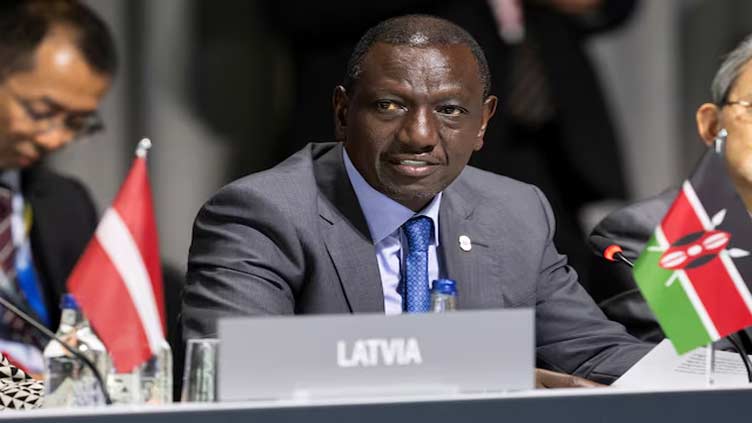Kenya president spoke to IMF chief after pulling tax hikes, sources say

World
The IMF has been a major target of the ire of young Kenyan protesters
NAIROBI (Reuters) - Kenyan President William Ruto spoke by phone with International Monetary Fund chief Kristalina Georgieva in the days after he withdrew $2.7 billion in proposed tax hikes in response to deadly protests, two diplomatic sources told Reuters.
The finance bill containing the tax increases was central to policy reforms agreed by Kenya with the IMF as part of a lending programme worth $3.6 billion.
Analysts say its withdrawal a week ago is likely to result in Kenya missing key programme targets.
The IMF has been a major target of the ire of young Kenyan protesters, who have accused it of being the driving force behind the proposed tax hikes.
The two sources, who spoke on condition of anonymity, did not provide details about Ruto and Georgieva's phone call.
However, they said there was agreement among major donors that the IMF needed to show flexibility on programme targets as Kenya looked to fill the gap caused by the bill's withdrawal.
The IMF reached a staff level agreement with Kenya in early June on a policy package needed to complete the lending programme's seventh review, expected to unlock a disbursement of several hundred million dollars, but the deal has not yet received approval from the fund's Executive Board.
An IMF spokesperson said: "We remain deeply concerned by the recent tragic events in Kenya and maintain close ongoing and constructive dialogue with the Kenyan authorities," when asked about the call.
Ruto's spokesperson did not respond to requests for comment.
Since shelving the bill, Ruto has pledged to include austerity measures in a supplemental budget, but has also suggested that the government will need to significantly increase borrowing in the 2024/25 fiscal year.
An IMF spokesperson said last week that its main goal has been helping Kenya overcome its economic challenges and improving its people's well-being.
At least 39 people have been killed in the protests, according to a government-funded human rights organisation. Anti-government demonstrations have continued since Ruto pulled the bill, although with lower turnout.


